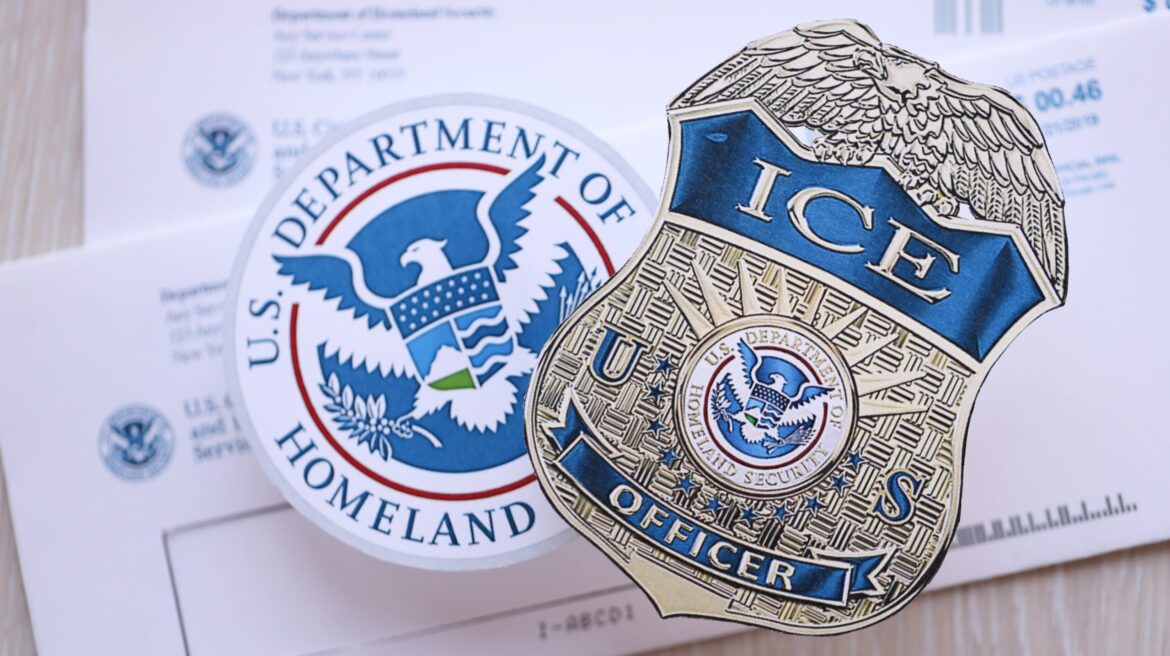ICE on Campus: Understanding Different Types of Warrants in School Settings
Schools are increasingly at the crossroads of immigration enforcement and student privacy. Learn how to navigate legal challenges while protecting your students' rights.

A January 2025 blog post, “A New Ice Age in Federal Immigration Law Enforcement,” outlined some of the issues and potential responses to consider as the federal government and its agents (through the Immigration, Customs and Enforcement, or ICE) attempt to enforce immigration laws on school grounds. Here we will expand on some of the key points, but the focus of this blog post is on some recent questions we have received regarding the different types of warrants school leaders might be presented with if federal agents come to their school.
What’s the Law?
By way of brief background, under current law, non-citizen students have a right to receive a free public education, just as citizen students. In Plyler v. Doe, the U.S. Supreme Court made clear that it is unconstitutional to deny a student a public education based on their citizen status. This remains the law.
Several bodies of law are applicable to student privacy rights and are likely implicated in a situation that might involve government actors seeking to enforce immigration law or policy at your school. These include Family Educational Rights and Privacy Act (FERPA), the Fourth Amendment prohibiting unreasonable search and seizure, and state specific laws that relate to informing parents. These are covered in greater detail in the prior article, and we refer you there for a more specific overview.
Types of Warrants
The Fourth Amendment prohibits unreasonable searches and seizures. A warrant is a document issued by a government official, usually a judge, authorizing a search or seizure because, under the known circumstances, the search or seizure is reasonable. Schools control their property and, typically, can require a warrant for law enforcement to enter or conduct a search on school grounds. There are some exceptions (e.g., a “hot pursuit” of a suspected criminal), but absent these, the Fourth Amendment requires a validly issued warrant for a search or seizure to be reasonable and thus allowed under the law.
In the context of immigration enforcement, there are also warrants issued by administrative judges. These are administrative warrants and not judicial warrants. The scope of an administrative warrant is defined by statute. Therefore, the effect (and your potential response) to an administrative warrant is different than a judicial warrant.
Below is a brief summary regarding the distinctions followed by some suggestions.
- Judicial Order or Lawful Subpoena. Judicial orders are orders from a judge, also known as court orders. The authority of federal judges to issue orders originates with the U.S. Constitution, while statutes and local rules prescribe the process for obtaining or issuing a judicial order. Judicial orders are typically limited to litigation pending before the court that issued the order and are directed to one or all of the parties litigating. A lawfully issued subpoena is a type of judicial order that compels individuals or entities to provide records or testimony. A subpoena can be issued by an attorney as an agent of the court. These are not warrants, and FERPA requires a school district to notify the parent or eligible student before complying if the request is for student personally identifiable information.
- Administrative Warrants or ICE Warrants. These are issued by administrative officers and are limited by statute. ICE Warrants can only be issued for the arrest of someone who is suspected of being in violation of immigration laws. This is not a warrant for Fourth Amendment purposes (e.g., to satisfy a reasonable standard for a search and/or seizure of a student). It does not compel a school official to comply with a federal agent, nor does it require that a school official grant access to information or a student on school grounds. However, an ICE Administrative Warrant can be executed in public spaces such as the front of the school during pick-up time or at a sporting event. If the space is open to any member of the public, it is considered a public space.
- Federal Court Warrant. Generally issued by federal magistrate judges, a federal court warrant authorizes federal law enforcement agents to search a person, place, or thing for evidence of criminal activity. This is a warrant for Fourth Amendment purposes.
Recommendations for Administrators, Staff, and Teachers
- School districts should adopt policies and protocols so that every staff member has a clear understanding of what to do and what to expect should federal agents attempt to enter school grounds. Train everyone including front office staff, custodians, and paraprofessionals. It is usually your non-professional staff at the exterior doors.
- In most, if not all, circumstances where ICE agents might seek to enter school grounds to seek a student or student records, school administrators should immediately contact their central office and legal counsel. It is OK to ask the agent to wait. Unless there is an emergency, the agent should expect and understand your request to seek clarification from a supervisor and advice from legal counsel.
- Stay calm. Your students and staff and the agents will take their cues from you. Follow your process, and assure staff that the district will stand behind them provided they follow the district’s process.
Sarah Flourney is a school law attorney and partner at Brackett & Ellis Law Firm in Fort Worth, Texas. She is a member of the Education Law Association.
Mark Paige is chair of the Department of Public Policy at UMass-Dartmouth. He is a member of the Education Law Association.




